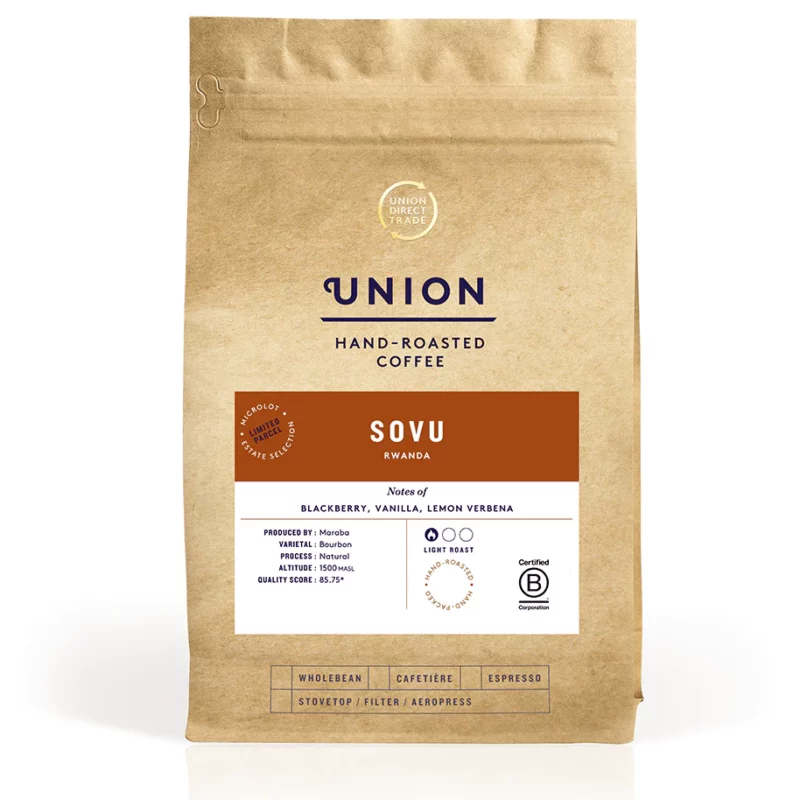
About this Coffee
Juicy with vibrant acidity
An exceptional example of natural processing. Brewed as a filter this coffee is juicy and full of flavour – bursting with dark fruits like blackberry, alongside subtle vanilla sweetness and perfumed lemon verbena notes.
This coffee takes its name from the Sovu washing station, used by members of the Maraba co-operative, our longest-standing partner. This exquisite coffee is the result of the highly skilled growing, harvesting and processing; and the areas perfect conditions of silt-clay-sandy soils, high altitudes and ideal climate.
Only the ripest cherries are selected before being expertly slow dried on raised African beds – this coffee took up to a month to dry. The coffee washing station is an important source of employment in the region and employs between 80 and 100 people during the season, of which 80% are women.
The Maraba co-operative have a very important role in Union’s history, being the first co-operative that Union partnered with back in 2001. A USAID-funded development project was launched to improve the livelihoods of poor rural farmers through production of high-quality coffee following the Rwandan genocide in 1994. Union were the first commercial partners of this project, becoming the first coffee company in the world to source speciality coffee from Rwanda.
Rwanda is commonly nicknamed ‘The Land of a Thousand Hills’ – a small country with a hilly landscape allowing you to see for miles. The high altitudes make for the perfect locations to grow speciality coffee. Maraba coffee is grown up at 1,700 metres above sea level.
From approximately 300 initial members in 2001, the cooperative has expanded to over 1,500 members, of whom about 35 per cent are women. We have worked with the cooperative to fund processing facilities and to provide training in growing high quality coffee, allowing farmers to earn more for their crop. The premium we pay has contributed towards health insurance for cooperative members, improved housing with hygienic flooring, tile roofing and furniture, and economic stability in the local area through the creation of shops and local banks. Being able to eat three balanced meals a day has resulted in improved nutrition and health.
There has been a transformation in Maraba. What was one of the poorest regions of Rwanda, has now got growing economic stability, a bustling town and strong community spirit.